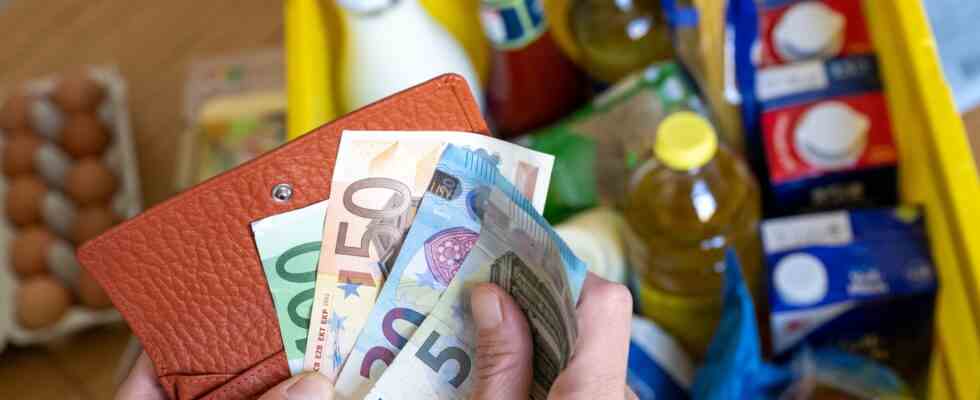Status: 02/23/2023 12:34 p.m
The high level of inflation in the eurozone eased further at the beginning of the year. Energy prices continue to rise the most, albeit more slowly than in the previous months.
The slowdown in energy prices caused inflation in the euro area to drop significantly at the beginning of the year. In January, consumer prices increased by 8.6 percent year-on-year, according to the statistics office Eurostat. The first estimate was a little lower at 8.5 percent. Inflation was 9.2 percent in December and 10.1 percent in November.
In a month-on-month comparison, prices fell by 0.2 percent in January. This means that inflation in the currency area has weakened for the third month in a row.
Energy prices remain inflation drivers
Energy prices pushed the rate of inflation up sharply in January as well. But the price increase was not quite as strong as recently. Within a year, energy prices rose by 18.9 percent after 25.5 percent in December. Food, alcohol and tobacco prices rose 14.1 percent from 13.8 percent in December.
Non-energy industrial goods prices rose 6.7 percent in January after 6.4 percent in December. Services cost 4.4 percent more in January than in December.
Core inflation higher than expected
Core inflation, which removes volatile energy and food prices, was also slightly higher in January than previously reported. Eurostat revised the annual rate from 5.2 percent to 5.3 percent. Core inflation is thus still at its highest level since the introduction of the euro and shows that the strong price increases are not only affecting energy and raw materials.
Economists attach particular importance to core inflation because it indicates that companies are passing on costs to consumers. This can result in second-round effects in the form of higher wage demands, which can ultimately lead to a price-wage spiral.
The ECB’s fight against inflation
The price target of the European Central Bank (ECB) of two percent in the medium term continues to be clearly exceeded. The central bank recently fought against high inflation with interest rate increases of 0.50 percentage points.
On the financial markets, the question is currently being asked as to how much further the ECB could raise its key interest rates. Since the economy has developed relatively solidly up until recently and inflation has fallen only moderately, interest rate expectations have risen noticeably. At the interest rate meeting in mid-March, the financial markets are firmly expecting a 0.50 point increase in key interest rates.

